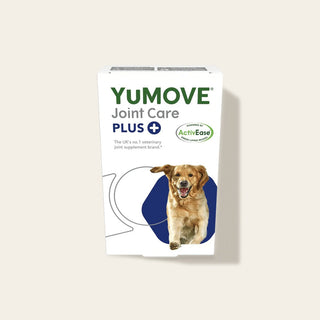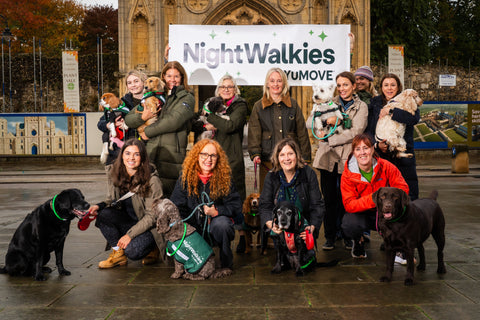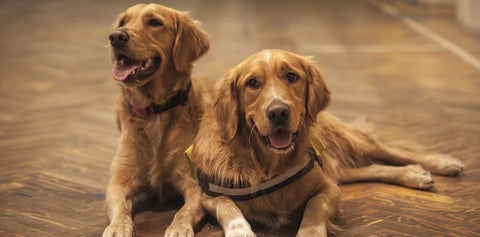
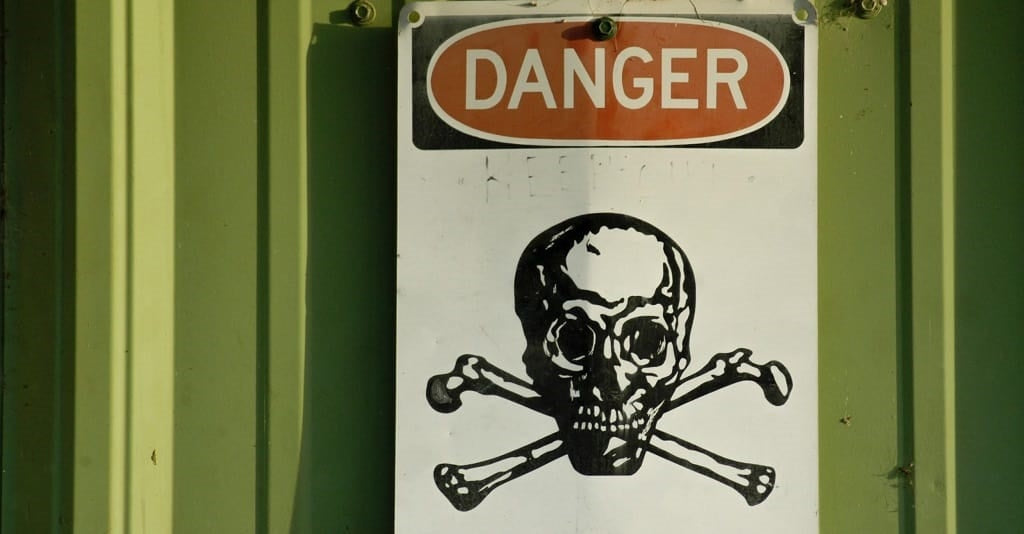
Pet First Aid: Poisoning in Dogs
Dogs are curious animals with a very strong sense of smell and sight and an ability to pick up frequencies that humans cannot hear. They love to sniff, lick and paw at objects to find out what they are - usually assessing if those objects are edible!
As eager as your pup may be to explore their surroundings, there are many kinds of toxic substances that a dog can come into contact with in and around the home. Every dog owner should know what to do if their dog has been exposed to something harmful or poisonous. In this guide, we talk about poisoning in dogs, detail some of the most common items which could be poisonous to your dog, the signs of poisoning in dogs and what to do if your pooch is showing any signs of being poisoned.
Common substances which are poisonous to dogs
Just like humans, each of our furry friends is unique and can respond differently to various foods and substances. That’s right, dogs can have allergic reactions, too!
That being said, there are some substances which are toxic to all dogs, so contact with these items should be avoided.
Whilst this list is by no means exhaustive, here are some of the most common substances found in the home or garden which are harmful to your dog.
Chocolate
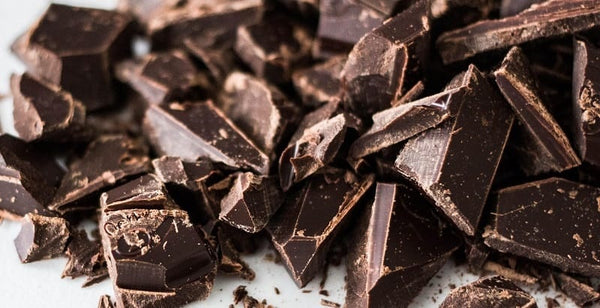
Chocolate is one of the most commonly known substances which is poisonous to dogs. Theobromine, which is the chemical within chocolate which is harmful to your pooch, is a bitter alkaloid deriving from the cacao plant. There is a reason that pet stores sell chocolate made specifically for dogs. Dogs love the smell of chocolate and will want to get their lips around it, but doing so could cause agitation, convulsions, tremors, and even heart issues.
Grapes and raisins

It’s still not fully understood why grapes and raisins are toxic to dogs, but they can be extremely harmful if ingested, no matter how small the amount!
Household cleaning products
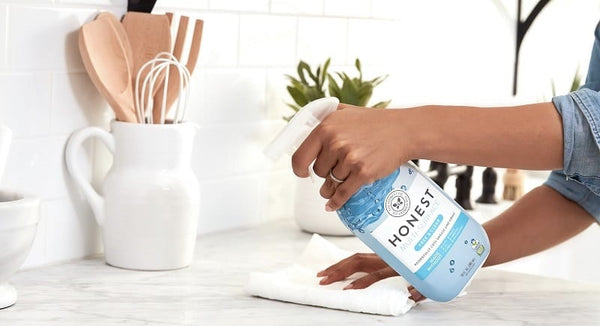
Every home will contain some form of cleaning products and whilst these are necessary for day-to-day living, they can be harmful to pets if they are absorbed, inhaled or ingested. Detergents, fabric softeners and sprays can also be harmful to dogs, as can regular soaps, due to the various chemicals and bleaches within them.
For example, dishwasher detergent can cause serious damage to your dog’s mucus membranes within the mouth and intestines - causing convulsions, diarrhoea and vomiting if ingested. Keep your cleaning products out of reach of your dog, and in a place which they can’t sneakily get to. If in doubt, always read the label and it could even be worth checking if pet-friendly cleaning products are available.
Human medication
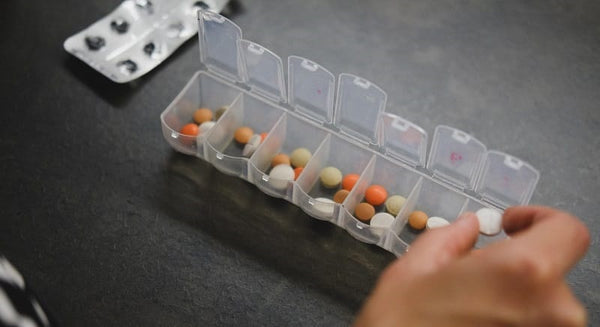
It goes without saying that some medications are just for humans, thanks to the chemicals and ingredients they possess. As humans, we couldn’t go munching on our pet’s medication, would we? Whilst ibuprofen may be considered a common household drug, this anti-inflammatory medicine can be harmful for our dogs if they eat them. Sickness, diarrhoea and kidney failure are all possible side effects, so be sure to keep your medicines well out of your dog's reach.
Poisons and repellents
If you are using any kind of poison in your home or garden, then you should be sure to keep this out of areas which your dog can access. Your dog has a heightened sense of smell, so whilst the fumes from any poison should ward off certain pests, your dog may simply become intrigued.
In particular, rat poison is extremely harmful to your pooch and could cause excessive bruising or bleeding if ingested. If you’re using any poison, especially if it contains bromadiolone, difenacoum or warfarin, then keep your dog well away. Slug repellent is also one to be avoided, as the metaldehyde within this can cause breathing problems, convulsions and unsteadiness. These side effects may not show for several days after contact, which is even more threatening, so stay alert and always read the label!
Signs & Symptoms of poisoning in dogs
Signs of poisoning in dogs can vary depending on which toxic substance your dog has been exposed to and how much of it they have touched, inhaled or ingested. Some toxins are more harmful than others and so even a small amount could cause severe signs.
These signs can include some or all of the following:
- Agitation
- Blurred vision
- Breathing difficulties
- Diarrhoea
- Excessive drooling
- Increase in heart rate or other heart issues
- Irritation
- Loss of consciousness
- Physical pain
- Sickness and vomiting
If you suspect that your dog has eaten something poisonous, seek help from your vet as soon as possible.
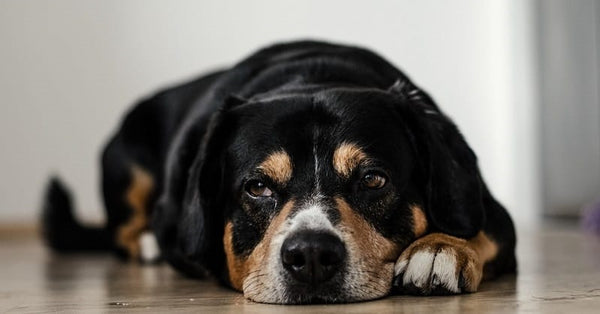
What to do if you think your dog has been poisoned
If your dog is showing signs of being poisoned the first thing you need to do is remain calm and try to move your dog from the source of poison - for example, away from a plant they may have eaten.
Try to identify what the toxin is and how your dog came into contact with it. Is this something that has been absorbed through the skin, eaten or inhaled? Could your dog have eaten something they shouldn't have, such as a harmful food or poisonous plant? Are there any signs of toxic chemicals?
Contact your vet immediately and provide as much information as possible. Try to inform them of where, when and how the poisoning took place. If you can, take the packaging or some pictures of what your dog might have eaten with you to the vet so they can assess the ingredients and predict the harm caused. Follow your vet's advice after their examination.
Here are some other tips to consider if your dog has been poisoned:
- Do not try to treat or medicate your dog at home. This could result in making matters worse or exposing your dog to other harmful substances. Some medicines are for human use only!
- Do not attempt to cause your dog to vomit
- Try to keep your dog away from other animals to avoid any cross-contamination
- Do not wait for the situation to get better. If your dog is displaying any of the signs above, seek help from your vet immediately
How to prevent poisoning in dogs
It may seem impossible to be able to keep an eye on your dog at all times, especially as they grow up and become more trusted with exploring their surroundings. However, there are things that you can do to prevent your dog from being exposed to harmful substances in your home and garden.
- Keep houseplants out of reach from your dog, such as on shelves or surfaces which they cannot get to. Collect any petals or leaves which have dropped to avoid them being eaten
- Keep cleaning sprays, bleaches and any other household chemicals in a place which your dog can’t reach or get to
- Assess your garden for any plants or flowers which could be poisonous to dogs , such as Bluebells, Daffodils and Rhubarb
- If you are using any pesticides, such as rat baits, keep these away from any area that your dog can access or restrict your dog's access while using
- Keep an eye on your dog and the things they eat. It goes without saying that your dog shouldn’t eat human foods such as chocolate (which is very poisonous to dogs) and should be fed their usual diet (prepared dog foods, dry foods or a RAW diet)
These are some of the most common substances which could be poisonous to dogs and are best to avoid. Looking for more tips on how to care for your dog?
